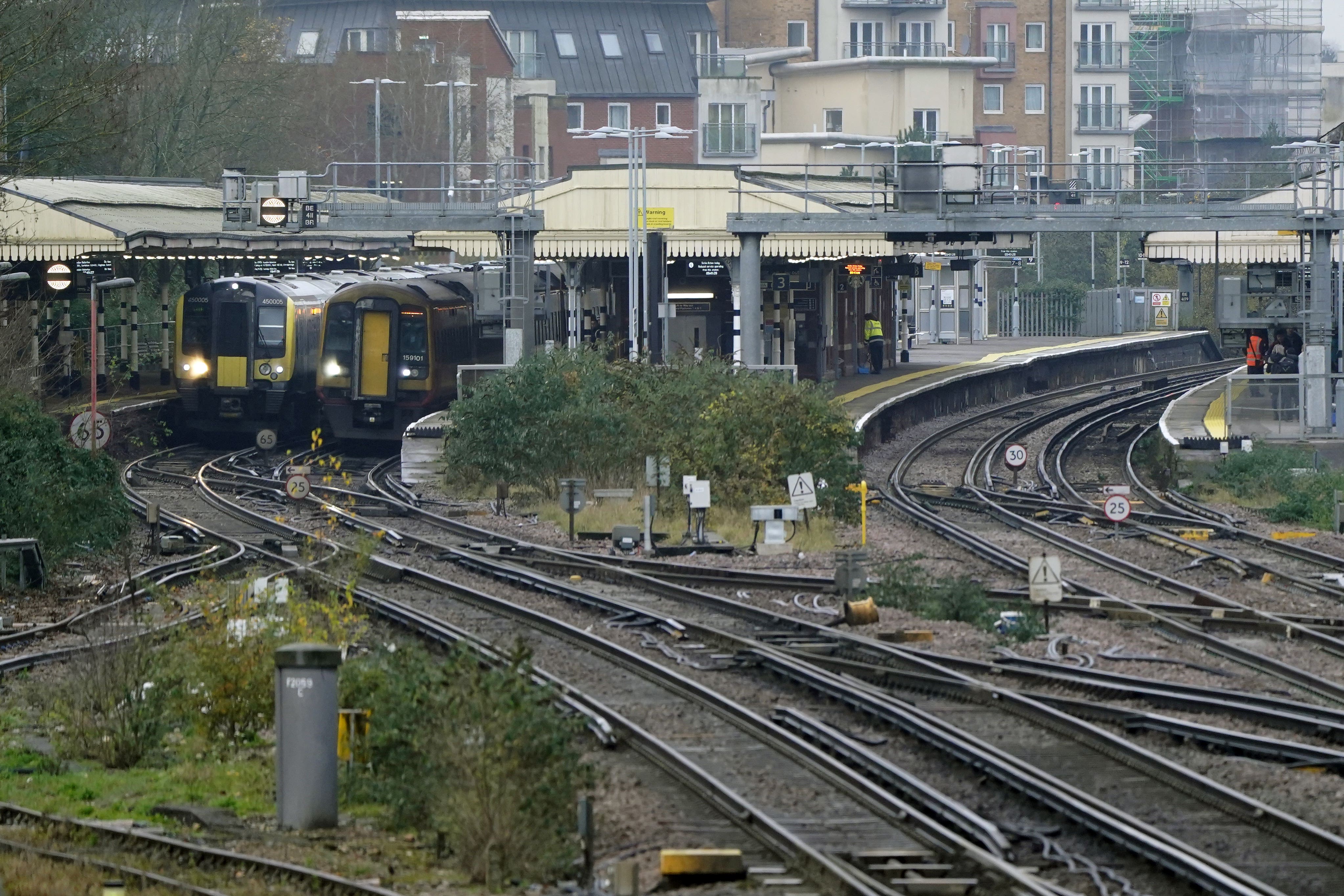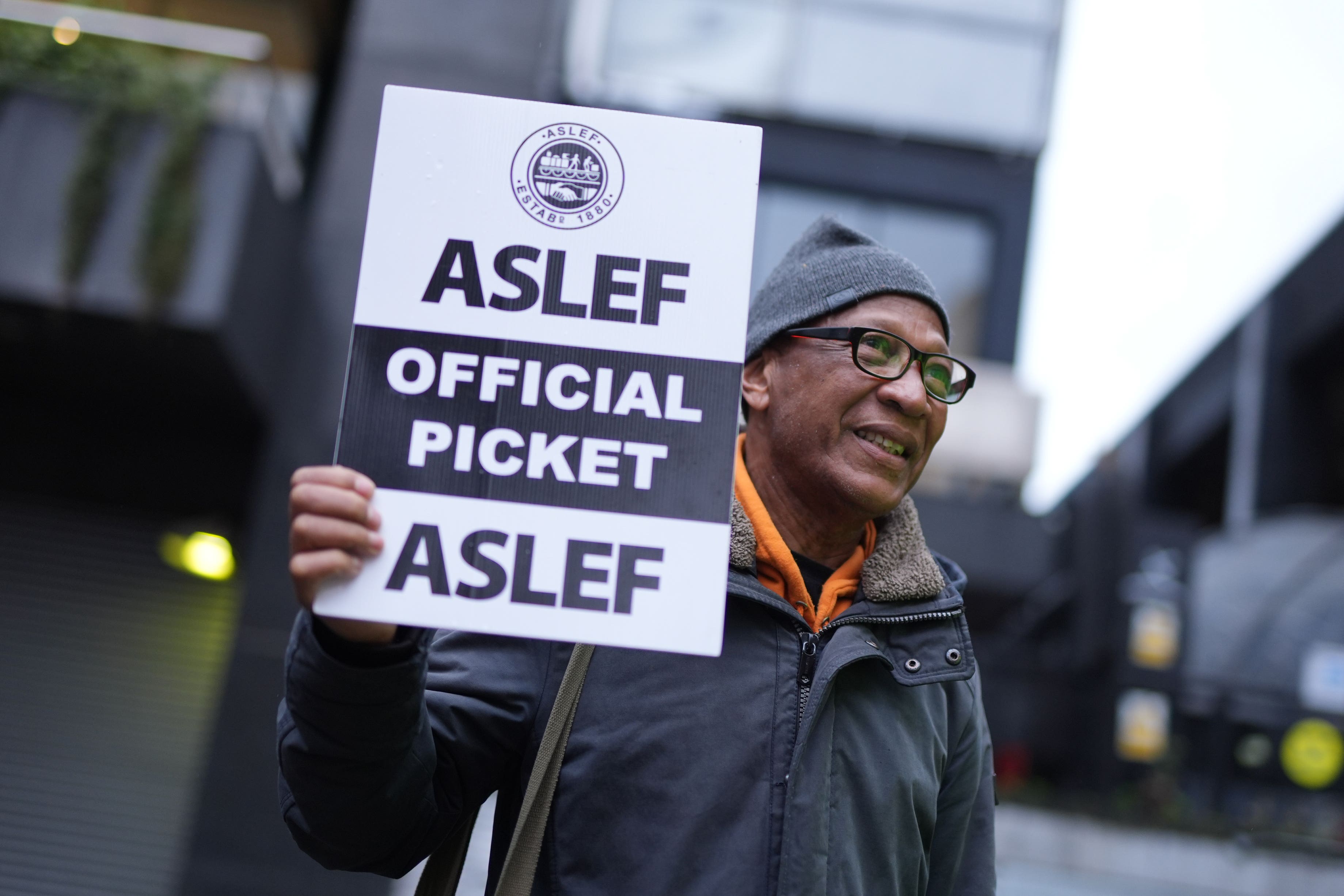Rail strikes threat averted as RMT workers accept pay deal
The long-running pay dispute for rail workers has come to an end

Your support helps us to tell the story
From reproductive rights to climate change to Big Tech, The Independent is on the ground when the story is developing. Whether it's investigating the financials of Elon Musk's pro-Trump PAC or producing our latest documentary, 'The A Word', which shines a light on the American women fighting for reproductive rights, we know how important it is to parse out the facts from the messaging.
At such a critical moment in US history, we need reporters on the ground. Your donation allows us to keep sending journalists to speak to both sides of the story.
The Independent is trusted by Americans across the entire political spectrum. And unlike many other quality news outlets, we choose not to lock Americans out of our reporting and analysis with paywalls. We believe quality journalism should be available to everyone, paid for by those who can afford it.
Your support makes all the difference.Rail workers have voted overwhelmingly to accept pay offers of over 4 per cent from train companies including Network Rail.
The National Union of Rail, Maritime and Transport Workers (RMT) says the rail dispute is now “concluded” following the vote, which will likely see a reduction in the national rail strikes of the past two years.
Workers will now see pay increases of over 4 per cent in the next two years.
Network Rail members, who are mostly signallers and maintenance staff, will receive a 4.5 per cent increase this year.

Train operators, which covers train crew and ticket office staff, will see a 4.75 per cent backdated increase on last year’s pay alongside a 4.5 per cent rise for this year.
Members working for Network Rail were overwhelming in their vote in favour of accepting the deal (89 per cent), while members at other train operating companies voted to accept almost unanimously (99 per cent in favour).
The pay deal comes a week after train drivers in the ASLEF union accepted a pay rise of over 15 per cent over three years from the Department for Transport.
The overwhelming decision by ASLEF’s 20,000 members ended a dispute with 16 train operating companies in England, which had led to 18 days of strikes.
The rail strikes from 2022 to 2023 were the largest the sector had seen since 1989, and involved tens of thousands of workers across the UK.

More than 30 days of industrial action were held by the RMT since June 2022 following a previous pay dispute with rail companies, before deals were agreed last year.
The latest round of deals significantly reduces the chance of any further rail strikes in the immediate future.
After accepting the deal, the RMT said: “This outcome reflects the collective efforts of our membership in defending their jobs, working conditions, pay, and pensions from the attacks of the previous Tory government and their private contractors.
“We thank our members for their efforts during this long but successful campaign.
“Their resolve has been essential in navigating the challenges posed during negotiations and in particular the previous Tory government’s refusal to negotiate in good faith, alongside relentless attacks by sections of the media and the employers.
“RMT remains focused and committed to supporting public ownership as a path to building a stronger future for the rail industry for both workers and passengers.”
Join our commenting forum
Join thought-provoking conversations, follow other Independent readers and see their replies
Comments